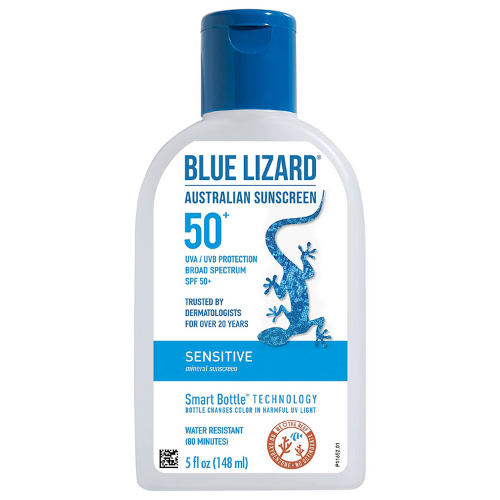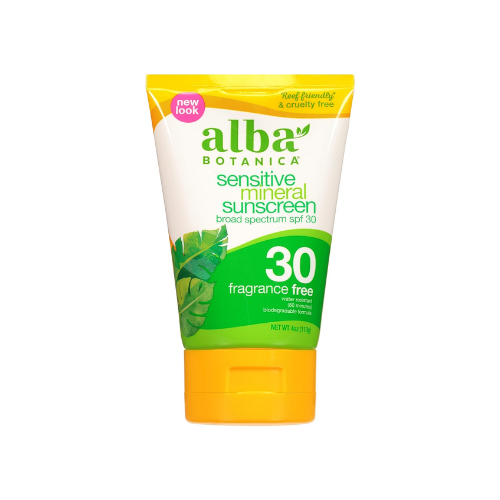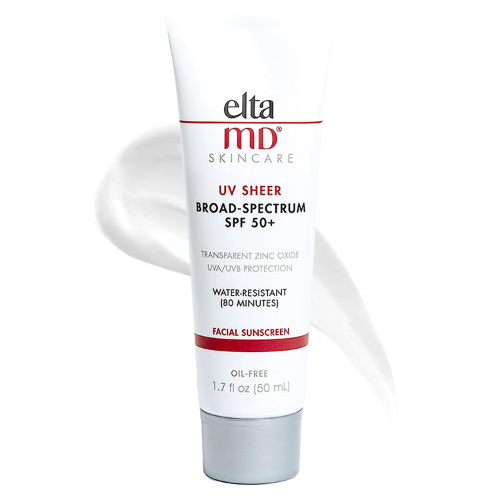Second Source: Yes, “DIY Sunscreen” Is a Bad Idea

Our editors independently select the products we recommend. We may earn a commission on items bought through our links.
Fixing your own toilet is, most likely, harmless. Re-painting one’s bedroom is economical. Re-attaching the dresser drawer handle is easier than calling the guy. Doing it yourself (DIY-ing) is a savvy, safe choice for many small jobs. Mixing a homemade concoction of plant oils for sun protection is not one of them.
Today's Top Deals
The Eco-Warriors of TikTok have struck again: now they’re offering up DIY sunscreen recipes made from ingredients from Whole Foods that aren’t as effective, or as safe, as the store bought varieties tightly regulated by the FDA. When it comes to sun protection factor, or SPF, the chemical balance has to be exactly right for it to work, let along for hours on end while swimming and hiking.
FDA-approved sunscreens don’t have a perfect track record. Some of them contain chemicals like oxybenzone and octinoxate that have a harsh effect on marine ecosystems and have been banned in Key West and Hawaii under the Hawaii 104 Reef Act. Neutrogena and Aveeno sunscreen products were recalled by the brands in 2021 due to detection of cancer-causing benzene in their formulas during routine manufacturing checks.
Benzene, according to Dr. Luke Maxfield, an LA-based dermatologist, was never supposed to be in any sunscreen. It’s an accidental chemical byproduct. But he also doesn’t recommend any sunscreens that contain oxybenzone, an ingredient that’s harsh on skin as well.
The threat of toxic chemicals in a substance as ubiquitous as sunscreen has sparked demand for “all-natural recipes” that have garnered millions of views on TikTok during some of the hottest days and months in recorded history.
“I would love to be able to recommend this, actually. I’m a big fan of people being creative and taking ownership of their lives, including with skincare,” said Dr. Maxfield.
“I would love to say to someone ‘Yes, xyz, do it at home. This is something you feel comfortable with, safe with, and it’s effective.’ But the latter part of that is where this all falls apart.”
The recipes contain coconut oil and jojoba oil, as well as red raspberry oil and carrot seed oil which, according to a comprehensive study of individual ingredients, have very minimal SPF protection.
“There are a lot of natural oils that have an SPF factor. We know that zinc has a lot of sun protection and it’s broad-spectrum, but if you look at the individual oils and ingredients there’s even a study that shows that all of them, individually, at best have an SPF rating of 7,” said Dr. Maxfield.
Most sunscreens average out between 30-50 SPF, the percentage of the sun’s rays they’re able to block out. An SPF rating of 30 blocks out 96.6% of SPF rays. An SPF rating of 7, according to Dr. Maxfield, is exponentially worse.
“At best it’s 87% effective. And that’s somewhat effective, but comparatively, especially in the setting of real life, that’s marginally better than a bronzing tanning lotion that no one has ever considered effective sun protection,” said Dr. Maxfield.
In combination with one another, the effectiveness does not multiply. In fact, they may counteract each other, but there’s no way to know according to Dr. Maxfield.
“So if you’re starting out with an SPF of 7, and you throw in the factors that can contribute to variability, instability, and ineffectiveness, it’s extremely hard to imagine that what you’re cooking at home, on your stove, with ingredients you bought at like Whole Foods is going to outperform this composition and formulation that’s regulated like a drug. It’s inconceivable.”
For folks looking to avoid harsh chemicals but not sacrifice effectiveness, both Dr. Maxfield and Dr. Ahmad Chaudhry, UK-based dermatologist of Scandinavian Biolabs, recommended mineral sunscreens with zinc.
“These ingredients physically block UV rays and are less likely to cause skin irritation,” said Dr. Chaudhry. We’ve included some picks from dermatologist-approved brands below that are oxybenzone-free.
While hard-to-pronounce ingredients may feel less trustworthy than countertop olive oil, and federal regulators have failed in the past, sunscreens that have gone through an approval process as rigorous as everything else we ingest for a medical problem are the better option.
“Earning back trust is a whole other issue, in the large scale and the small scale,” said Dr. Maxfield. “Cosmetics is only a small part of that, sunscreen is only a small part of that.”

BLUE LIZARD Sensitive Mineral Sunscreen
Buy Now On Amazon
Blue Lizard’s mineral sunscreen is formulated specifically for sensitive skin for UVA/UVB protection. It’s water and sweat-resistant for up to 80 minutes, and is formulated reef-safe without oxybenzone and octinoxate.

Alba Botanica Sunscreen Lotion
Alba’s Botanica mineral sunscreen has an SPF rating of 30 that’s broad-spectrum and has a lightweight, non-comodogenic formula that’s great for the face and body. It’s also made with niacinamide, squalane and vitamin E for extra nutrients.

EltaMD UV Sheer Face Sunscreen, SPF 50+
Buy Now On Amazon
EltaMD makes an excellent lightweight mineral sunscreen with an SPF rating of 50+ that’s water and sweat-resistant. It’s made to absorb quickly without leaving behind residue.
More Top Deals from SPY
Best of SPY
